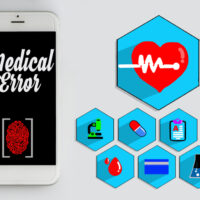Errors in High-Alert Medication Administration

In the fast-paced environment of a hospital, where care of a patient may be handed off repeatedly and most patients are on some type of medication, it’s easy to make mistakes when administering a patient’s drugs. Nevertheless, it is critical that doctors and nurses observe best practices in patient handoff, communication, and verification when administering drugs. These safe drug administration practices are never more important than when administering a high-alert medication, which belongs to a collection of drugs carrying an elevated risk of harm if improperly issued. Learn more below about high-alert medication errors, and contact a knowledgeable Hudson Valley medical malpractice lawyer if you have additional questions.
If issued to the wrong patient or in an incorrect quantity, nearly any drug can cause major health consequences. That said, some drugs are much more likely than others to result in critical or fatal injuries when improperly issued. Classifying a drug as a high-alert medication means that medical professionals and drug manufacturers must take even greater care in manufacturing, labeling, and administering these drugs than they would with other medications.
Three categories of common high-alert drugs are:
Opioids
These drugs are some of the most powerful and addicting painkillers on earth. These drugs are often given to patients who have recently undergone surgery. Frequently, patients are put in control of how much pain medication they receive by being given a patient-controlled analgesia pump. If the patient is not carefully monitored while using these pumps, or if the wrong form of opioid is used in such a pump, the patient can suffer serious consequences.
Sedatives
These are drugs given to patients who are soon to undergo a major surgical procedure. Some doctors and nurses use these drugs improperly when treating agitated patients. Patients who have been issued sedatives improperly may become confused or dizzy and may have difficulty getting around without stumbling or falling. The interaction of sedatives and opioids can also have dangerous effects on patients.
Anticoagulants
These drugs, which include the common blood thinners Warfarin and Heparin, prevent the formation of blood clots in patients at risk of stroke or embolism. Anticoagulants must be limited in the time preceding a surgical procedure, as they could cause a patient to bleed excessively during and after the procedure. Medical professionals often err by failing to restart the drugs after a procedure, resulting in blood clot formation. Patients can also be harmed when they receive too great or too small of a dose.
If you or someone you love has been injured by improper administration of a high-alert medication in the Hudson Valley, contact the dedicated and effective medical malpractice lawyers at Rusk, Wadlin, Heppner & Martuscello, LLP for a consultation, at 845-236-4411 in Marlboro, or 845-331-4100 in Kingston.
